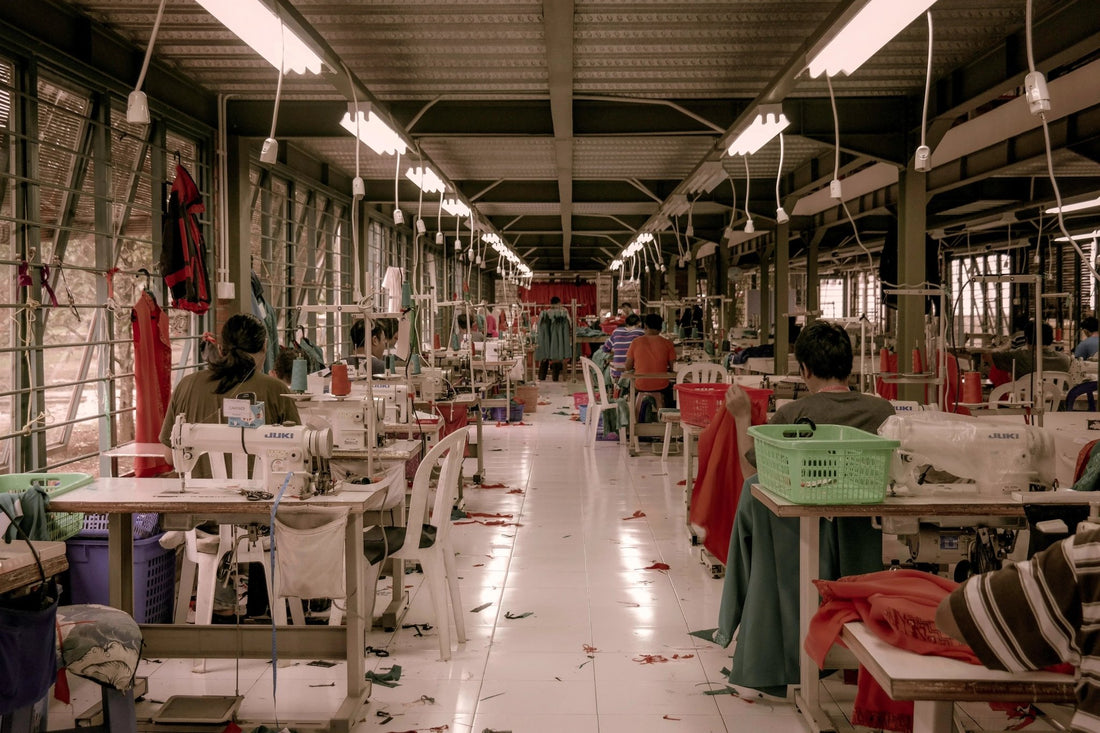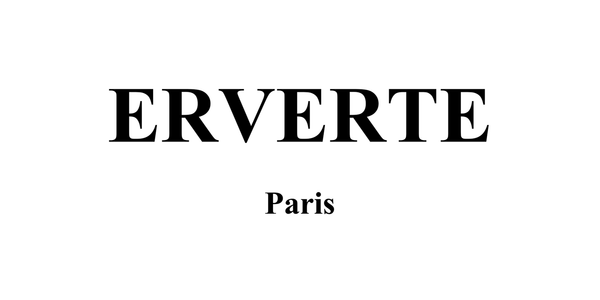
Exploitation and Misery: Unveiling the Underbelly of Fast Fashion
Share
Dear reader, we write this article to shed light on the catastrophic working conditions prevailing in the fast fashion industry. Driven by low prices, relentless production pace, and massive outsourcing, this industry has had devastating consequences for workers and our society as a whole. We also aim to contrast this situation with the "Made in France" approach, which offers a glimmer of hope amidst this grim reality.
Fast fashion has experienced exponential growth over the past decades, fueled by a relentless demand for cheap and trendy clothing. However, this economic model relies on the exploitation of workers worldwide. In countries where labor is inexpensive, workers often face deplorable working conditions, if not inhumane ones. Excessive overtime, meager wages, and neglected safety standards are commonplace in many fast fashion factories.
The relentless pace of production is another problematic aspect of this industry. Fast fashion brands constantly chase the latest trend to satisfy a consumer base hungry for novelty. This translates into immense pressure on workers, who must toil in stressful and often unbearable conditions to meet extremely tight production deadlines. This race to produce has devastating consequences on the physical and mental health of employees.
Outsourcing is another major factor contributing to the deterioration of working conditions. Large fast fashion brands relocate their production to countries with lower labor costs to maximize their profits. This leads to job losses in developed countries, where labor standards are generally higher, exacerbating economic inequalities on a global scale.
Focusing on specific examples, countries such as Bangladesh, India, and Cambodia have become major destinations for the production of cheap garments. In these countries, fast fashion workers face extremely challenging working conditions. Dilapidated and overcrowded buildings, inadequate safety measures, and subsistence wages are daily challenges they endure.
Tragedies in textile factories, like the collapse of Rana Plaza in Bangladesh in 2013, have highlighted the disastrous consequences of these hazardous working conditions. Hundreds of workers lost their lives, and many others were seriously injured, tragically underscoring the need for a change in fashion industry practices.
Beyond the deplorable working conditions, the relentless production pace poses significant problems. Brands strive to quickly churn out new collections to meet consumers' insatiable demand for novelty. This places tremendous pressure on workers, who must endure long hours in stressful conditions to meet extremely tight deadlines. This production race has harmful effects on employees' physical and mental well-being.
Moreover, the outsourcing of production to low-wage countries is another concerning reality of the fast fashion industry. Large brands relocate their factories to countries with lower wages and less stringent regulations. This leads to job losses in developed countries where working standards are generally higher, further worsening working conditions across the sector.
However, it is important to emphasize that alternatives to this grim reality do exist. Some brands are committed to adopting more ethical and sustainable practices. Initiatives such as local production, the use of sustainable materials, and transparency in the supply chain are steps that can be taken to improve working conditions and reduce environmental impact.
The "Made in France" model serves as an interesting example in this regard. France has strict regulations regarding working conditions, ensuring high safety standards and respect for workers' rights. Employees receive fair wages and adequate social protection. Furthermore, "Made in France" promotes local craftsmanship, preserving traditional skills and fostering sustainable innovation.
In conclusion, the catastrophic working conditions in the fast fashion industry demand urgent attention. It is crucial to raise awareness among consumers about these realities and encourage them to make informed choices when purchasing clothing. By supporting brands that embrace ethical and sustainable practices, we can all contribute to improving the working conditions of fashion industry workers and creating a fairer, more sustainable future.
Fast fashion has experienced exponential growth over the past decades, fueled by a relentless demand for cheap and trendy clothing. However, this economic model relies on the exploitation of workers worldwide. In countries where labor is inexpensive, workers often face deplorable working conditions, if not inhumane ones. Excessive overtime, meager wages, and neglected safety standards are commonplace in many fast fashion factories.
The relentless pace of production is another problematic aspect of this industry. Fast fashion brands constantly chase the latest trend to satisfy a consumer base hungry for novelty. This translates into immense pressure on workers, who must toil in stressful and often unbearable conditions to meet extremely tight production deadlines. This race to produce has devastating consequences on the physical and mental health of employees.
Outsourcing is another major factor contributing to the deterioration of working conditions. Large fast fashion brands relocate their production to countries with lower labor costs to maximize their profits. This leads to job losses in developed countries, where labor standards are generally higher, exacerbating economic inequalities on a global scale.
Focusing on specific examples, countries such as Bangladesh, India, and Cambodia have become major destinations for the production of cheap garments. In these countries, fast fashion workers face extremely challenging working conditions. Dilapidated and overcrowded buildings, inadequate safety measures, and subsistence wages are daily challenges they endure.
Tragedies in textile factories, like the collapse of Rana Plaza in Bangladesh in 2013, have highlighted the disastrous consequences of these hazardous working conditions. Hundreds of workers lost their lives, and many others were seriously injured, tragically underscoring the need for a change in fashion industry practices.
Beyond the deplorable working conditions, the relentless production pace poses significant problems. Brands strive to quickly churn out new collections to meet consumers' insatiable demand for novelty. This places tremendous pressure on workers, who must endure long hours in stressful conditions to meet extremely tight deadlines. This production race has harmful effects on employees' physical and mental well-being.
Moreover, the outsourcing of production to low-wage countries is another concerning reality of the fast fashion industry. Large brands relocate their factories to countries with lower wages and less stringent regulations. This leads to job losses in developed countries where working standards are generally higher, further worsening working conditions across the sector.
However, it is important to emphasize that alternatives to this grim reality do exist. Some brands are committed to adopting more ethical and sustainable practices. Initiatives such as local production, the use of sustainable materials, and transparency in the supply chain are steps that can be taken to improve working conditions and reduce environmental impact.
The "Made in France" model serves as an interesting example in this regard. France has strict regulations regarding working conditions, ensuring high safety standards and respect for workers' rights. Employees receive fair wages and adequate social protection. Furthermore, "Made in France" promotes local craftsmanship, preserving traditional skills and fostering sustainable innovation.
In conclusion, the catastrophic working conditions in the fast fashion industry demand urgent attention. It is crucial to raise awareness among consumers about these realities and encourage them to make informed choices when purchasing clothing. By supporting brands that embrace ethical and sustainable practices, we can all contribute to improving the working conditions of fashion industry workers and creating a fairer, more sustainable future.
